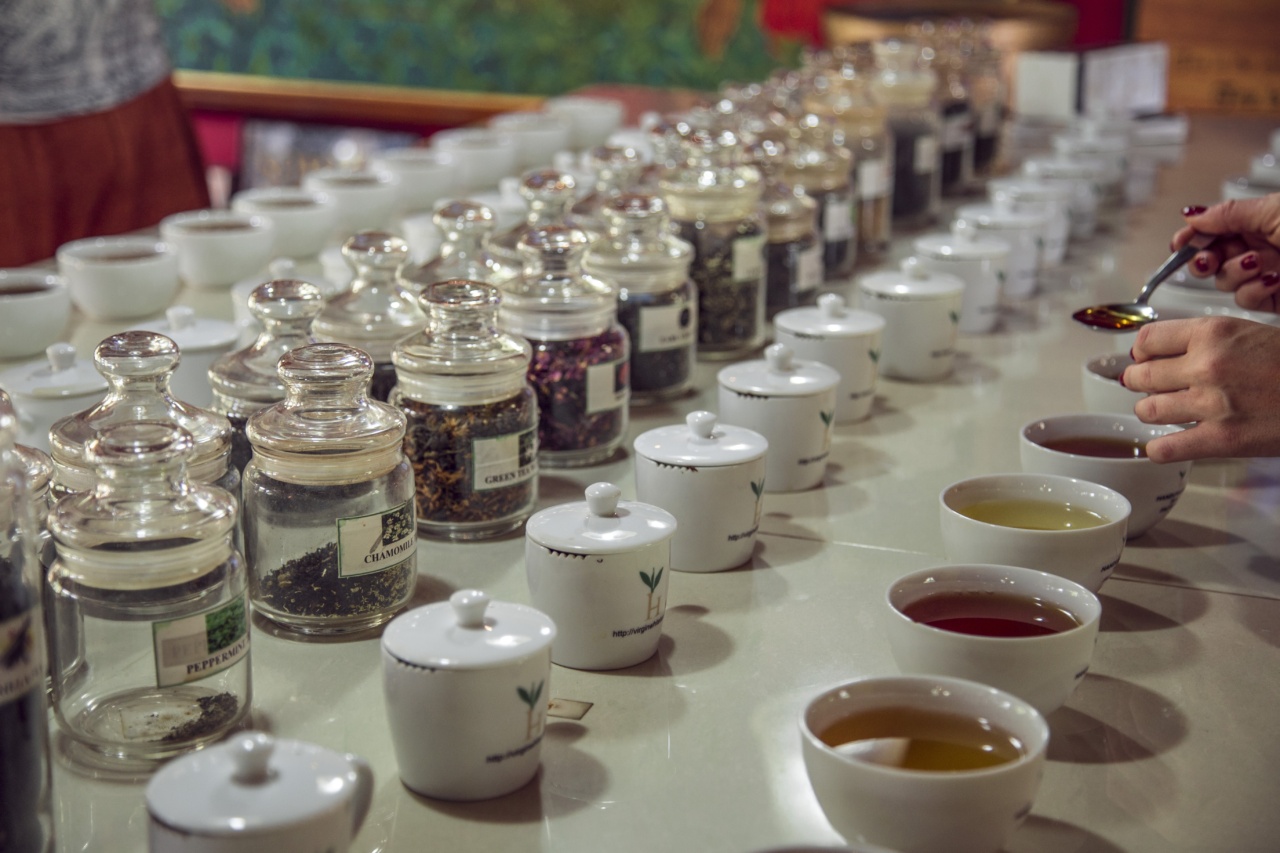Insomnia, a sleep disorder that affects millions of people worldwide, can be incredibly frustrating and debilitating.
The inability to fall asleep or stay asleep can result in fatigue, mood swings, difficulty concentrating, and a decreased quality of life. While there are various medications available to treat insomnia, many individuals are seeking natural alternatives that can help them sleep better without the side effects of prescription drugs.
If you’re struggling with insomnia and looking for a natural remedy, consider trying these 10 herbs that have been traditionally used to promote relaxation and improve sleep quality:.
1. Valerian Root
Valerian root has long been used as a natural sleep aid due to its sedative properties. This herb helps calm the nervous system and promotes relaxation, making it easier to fall asleep and stay asleep throughout the night.
Valerian root is available in various forms, including capsules, extracts, and teas.
2. Chamomile
Chamomile is a popular herb known for its calming effects. It contains apigenin, a compound that binds to certain receptors in the brain, promoting relaxation and reducing anxiety.
Drinking chamomile tea before bedtime can help induce sleep and improve sleep quality.
3. Lavender
Lavender is commonly used in aromatherapy due to its soothing and calming properties. Its scent can help reduce anxiety and promote relaxation, making it easier to fall asleep.
You can use lavender essential oil in a diffuser, apply it topically, or add a few drops to your pillow before bed.
4. Passionflower
Passionflower has been used for centuries as a natural remedy for anxiety and insomnia. It contains compounds that increase levels of gamma-aminobutyric acid (GABA), a chemical in the brain that helps regulate sleep.
Passionflower can be taken in the form of tea, capsules, or liquid extracts.
5. Lemon Balm
Lemon balm, also known as Melissa officinalis, is a herb that belongs to the mint family. It has been used for centuries to reduce stress, anxiety, and promote sleep.
Lemon balm can be consumed as a tea, taken in capsule form, or used as an essential oil.
6. Ashwagandha
Ashwagandha is an adaptogenic herb that helps the body cope with stress and anxiety. By reducing stress levels, ashwagandha promotes relaxation and better sleep quality. This herb can be taken in capsule form or as a powder mixed with warm milk or water.
7. California Poppy
California poppy is a gentle sedative herb that can help calm the nerves and promote restful sleep. It works by increasing levels of neurotransmitters that induce relaxation.
This herb is available in various forms, including tinctures, teas, and capsules.
8. Hops
Hops are primarily known for their use in brewing beer, but they also have sedative properties that can improve sleep quality. Hops can be consumed as a tea, taken in capsule form, or used in combination with other herbs.
9. Skullcap
Skullcap is a herb that has been traditionally used to treat insomnia and anxiety. It works by calming the nervous system and promoting relaxation. Skullcap can be consumed as a tea, taken as a tincture, or used in combination with other herbs.
10. Gotu Kola
Gotu kola is an herb that has been used in traditional medicine to improve cognitive function and reduce anxiety. It can also help calm the mind and promote better sleep. Gotu kola is available in capsule form or as a tea.
While these herbs have been used for centuries to promote sleep and relaxation, it’s important to note that everyone is different, and what works for one person may not work for another.
It’s always a good idea to consult with a healthcare professional before starting any herbal remedies, especially if you’re taking medications or have any underlying health conditions.
Instead of relying solely on herbal remedies, it’s also important to practice good sleep hygiene.
This includes maintaining a consistent sleep schedule, creating a relaxing bedtime routine, avoiding caffeine and electronic devices before bed, and creating a comfortable sleep environment.
By incorporating these herbs into your routine and adopting healthy sleep habits, you may find relief from insomnia and enjoy a more restful night’s sleep.




























